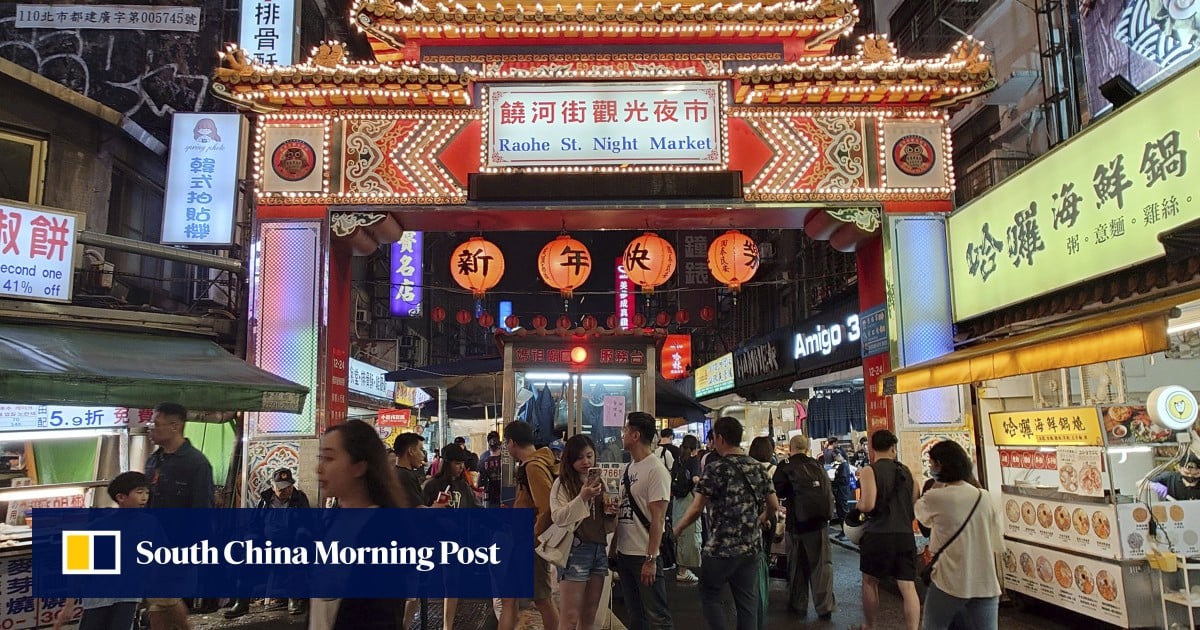JOCOTENANGO, Guatemala — On a quiet cobblestone street in a town 90 minutes outside of Guatemala City, class was in session for hundreds of young Guatemalans on a Monday morning. Children in kindergarten through ninth grade moved through the open-air courtyard of the free private school for disadvantaged students, which is run by a global nonprofit group based in Denver.
Painted on the wall by its entrance were the Spanish words, “La escuela, la esperanza” — or “The school, the hope.”
More than 1,900 miles north of the School of Hope, Denver city officials and residents have grappled for more than a year with accommodating a surge of immigrants — largely from Venezuela — that has stretched city resources. But going back six decades, Guatemala has served as a recurring source of newcomers to the state, with 2022 census data showing Colorado was home to about 7,900 people who had immigrated from the Central American country.
While the influx from Venezuela has drawn the most recent attention, Guatemala has long ranked among the top Latin American sources of migrants to the United States; it only fell behind Mexico and Venezuela during the most recent federal fiscal year. Between 2000 and 2021, the number of foreign-born Guatemalans in the U.S. more than tripled to about 1 million, according to the Pew Research Center.
To curb migration, two Denver-area nonprofits are taking a hands-on approach in Guatemala. They’re working on the ground to reduce poverty and address other conditions that have spurred many of its citizens to journey to the U.S.
Education for the Children Foundation provides at-risk students with free education, meals and mental health services in Jocotenango, aiming to set them up for future success in their own country. Meanwhile, Lakewood-based Friendship Bridge makes business loans to Indigenous women who are entrepreneurs in rural areas, helping them to build lives for themselves and their families.
The migrant crisis “is not an issue that can be handled by any one nation, any one state, any one city or any one nonprofit,” said Juan Carlos Franco Orellana, a general case manager at the Denver nonprofit Servicios de La Raza. But, he added, “organizations like those that are putting in that work to improve conditions in Guatemala — I would say, they’re the ones really making headway.”

During a visit by a Denver Post reporter to the School of Hope in late February, eighth grader Juan Carlos spoke about his hopes in a country where a student’s future is broadly determined by education. His last name was withheld, at the school’s request, for privacy.
He is one of seven siblings, and a brother has already traveled far from home to chase the American dream. But Juan Carlos, 14, aims to graduate and stay in Guatemala to support his family.
He first earned pocket change by polishing shoes on the street. Now, after school lets out for the day, he heads to the local market, where his sister sells chicken. He hawks clothing, making a monthly average of 500 to 600 quetzales, the equivalent of $64 to $77.
But the budding entrepreneur has plans that transcend market stalls: to get his high school diploma, then pursue a career as either an agronomist or a chef.
“I hope that we have a better future here in Guatemala,” Juan Carlos said in Spanish through a translator, while sitting in a classroom.

William Gómez, 42, a career counselor at the school, sees himself in the pupils he mentors. His childhood dream was to become a doctor, he said, but his family couldn’t afford that ambition. His father, a widower, worked for decades at a warehouse to support Gómez and three siblings as they grew up in the nearby city of Antigua. At age 10, Gómez helped craft ceramic figurines to sell at the market.
Throughout his life, he’s considered migrating to the U.S. in search of job opportunities.
But today, Gómez remains in his home country. He’s buoyed, he said in Spanish, by the hope that his students will “be that change that the country and the world needs.”

Civil war, corruption and inequality
Present-day Guatemala was forged by a tumultuous history, including decades of civil war and corrupt politics, along with extreme economic inequalities. Significant numbers of residents have left the country to escape those conflicts and pressures — including immigrants who established longstanding Guatemalan communities in Alamosa and Denver.
“This is a country that was really built on a base of inequality,” said Regina Bateson, an assistant professor of political science at the University of Colorado Boulder. “The problem is not a sheer lack of wealth. The problem is the distribution of that wealth.”
In a nation where about half of the population identifies as Indigenous — the Maya are the largest Native community — those citizens are overwhelmingly impacted by racial prejudice and poverty. The injustices date back centuries, with many Indigenous Guatemalans forced into agricultural labor through debt servitude in the 19th century.
The mounting systemic problems exploded into the Guatemalan Civil War in 1960.
As the federal military and leftist guerrillas fought for 36 years, more than 200,000 Guatemalans died — most of them Indigenous. The violence drove survivors from their homes. While the war ended in 1996 with a peace accord, “a lot of the issues that caused the civil war remained unresolved,” Bateson said.
Today, hundreds of Indigenous families from the municipality of Santa Eulalia in western Guatemala reside in Colorado’s San Luis Valley. Generations have called it home since migrants began resettling there in the 1980s.

Father Carlos Alvarez of Alamosa’s Sacred Heart Church said the mountainous region reminded the newcomers of Guatemala, with the church and the mushroom farm — long the immigrants’ largest local employer — serving as community focal points.
Many of the Guatemalans who first moved to the valley were originally seeking asylum in the U.S. A group of churches established the San Luis Valley Immigrant Resource Center to remedy the absence of immigration attorneys in the area, said executive director Flora Archuleta. Its team has since helped immigrants prepare their work authorization paperwork and renew their green cards.
The parents of Marisol Cristobal-Lucas, 27, came to Alamosa in one of the waves of migration. During Guatemala’s civil war, her father, Lucas Francisco Lucas, was one of the young Mayan men picked up at random by militants and trained for months in guerrilla warfare.
In 1986, he crossed the southwestern U.S. desert as an undocumented immigrant to work on the mushroom farm in Colorado with his brother.
“It was a good opportunity for them to make good money,” Cristobal-Lucas said.
Her mother, Eulalia Cristobal Sebastian, joined her father around 1993. Both had initially expected their stay in the U.S. to be temporary as they saved money. But Cristobal-Lucas said her father eventually became a U.S. citizen through programs set in motion by a Reagan-era amnesty law, and her mother secured a green card.
Decades later, Servicios de La Raza’s Orellana said, back in Guatemala, “economically, things are still very hard.” Even blue-collar industries, such as construction, don’t offer the same opportunities as in the U.S. because Guatemala isn’t building infrastructure as quickly, said Orellana, who was born in Guatemala City.
Although the country is home to Central America’s largest economy, with its gross domestic product valued at $95 billion in 2022, according to the World Bank, over half of the population lives in poverty.
Guatemalans are pushing to reduce government corruption, but Bateson, the CU professor, called domestic politics “pretty complicated,” with elected leaders prone to self-enrichment and involvement with organized crime.
“It’s one of the most unstable party systems in the world,” she said.
Still, despite Guatemala’s challenges, Vivi Lemus is among immigrants here who work to counter negative perceptions about their homeland. She is a co-owner of Convivio Café, a bilingual coffee shop in northwest Denver, and has now lived in Colorado with her husband for more than 20 years.
“You hear corruption, you hear occupation and you hear all the strife,” said Lemus, 48. “You seldom hear about the hospitality, the kindness, the beauty of people, the flavors, the amazing Mayan culture that extends centuries — and the wisdom that is my heritage.”

School’s goal is for students “to stay here in Guatemala”
With its focus on improving conditions for Guatemalans, Denver-based Education for the Children Foundation began as a scholarship program two decades ago. In 2005, it expanded to open the School of Hope in Jocotenango, with 80 pupils at its start.
The student body has since quintupled to 400, with a staff of about 60 employees. Every year, the school accepts 40 or so new students, usually of kindergarten age.
“We never advertise, because we have too much demand,” said Sara Miller, the nonprofit’s U.S. executive director. Instead, the pupils’ parents often first learn about the school through word of mouth.

About 25% of those parents are illiterate, with the majority having only reached sixth grade in their education, Miller said.
Because entry-level jobs often require at least a high school education, unlearned Guatemalans tend to earn a living in the country’s informal economy. The majority of the nation’s working population — 68% of men and 76% of women — tried to make money informally in 2021, says a report by the U.S. Agency for International Development.
Miller said her students’ fathers often work as bus drivers and construction workers, while their mothers are paid to make tortillas, clean houses and iron clothes. She estimates that the families earn the equivalent of $200 to $300 per month.
Today, evidence of Guatemala’s wealth inequalities is readily apparent.

While luxury apartment buildings tower over Guatemala City, to the west in Jocotenango, a shantytown of illegally built homes rises up the hillside of La Vista Hermosa — a makeshift community where about 150 School of Hope families live as squatters, Miller said. The municipal land isn’t zoned for housing because it’s prone to landslides, but residents accept the risk to avoid paying rent.
The cobblestone path winding through the neighborhood was traversed by family members picking up their children from the nearby public school. Then, they hopped on motorcycles or into three-wheeled vehicles called tuk-tuks — both cheap modes of transportation in Guatemala. Across from a soccer field, a mural painted on a wall urged “la no violencia,” or nonviolence.

The public education system is free, but is “really underfunded,” Miller said, with 60 students crammed into a classroom for just three or four hours of instruction per day.
So, some parents opt to enroll their children in private school, though costs quickly add up for school supplies, uniforms and more. The School of Hope helps ease those financial burdens by offering high-quality education at no cost to its students.
Aracely Chajón, director of the school’s social services programs, said the students’ families still deal with socioeconomic problems, sometimes resulting in violence, alcoholism and absentee parenting in households. Chajón, 39, said in Spanish that “a very beautiful part of the foundation is to volunteer a place where (students) feel they have the confidence” and the trust to express themselves openly at school. There, “someone listens to them.”

During the COVID-19 pandemic, Chajón and Miller watched as several of the school’s pupils left Guatemala, with 10 immigrating as unaccompanied minors to the U.S. to join relatives. But other students decided to remain in the country because they wanted to graduate.
The majority returned to school when viral outbreaks eased, Miller said.
“Our goal is for them to stay here in Guatemala,” she said.
She hopes to open both a preschool and a high school. The foundation plans to construct another building, which will cost $1 million; it’s raised $500,000 for the project so far.
“Through education and access to opportunities, (students) can find a good job in Guatemala and be able to support themselves,” Miller said. “Their children will grow up in a very different environment.”

Entrepreneurship offers women new opportunities
Since Friendship Bridge launched its Guatemala operation in 1998, the Lakewood nonprofit has focused on offering a lifeline through business. It largely supports Indigenous women entrepreneurs by providing business training, individual loans, group lending and education on topics, such as women’s rights.
Because of the dearth of medical care in rural Guatemala, the nonprofit also offers health services.
More than two decades after its start, Friendship Bridge now serves about 35,000 clients — women who typically come from impoverished communities and share the task of taking care of large families, said Indira Maldonado, the organization’s communications and visual design coordinator. But they often find themselves stuck in “a cycle of the poverty,” she added.
Maldonado, 25, places much of the blame on her country’s machismo-inflected culture, which fosters violence, alcoholism and other problems.
“In this culture of machismo, it’s really hard for women to have their own voice,” she said.
So, the nonprofit seeks to empower women because, “when you give to women, they invest everything for their families,” Maldonado said.

Lidia Par Puzul, 37, usually creates her goods at home, shaded under a roof of blue tarp and tin, in the small town of Cipresales in the country’s western highlands. But during The Post’s visit in late February, she demonstrated the art of beading at Friendship Bridge’s Guatemala headquarters in Panajachel.
Her wares — Christmas ornaments, chunky necklaces and animal figurines of various colors and sizes — were spread out on the table in front of her as she threaded minuscule beads onto a needle and pulled, working toward the final product: a red bracelet.
Like other Mayan women, she wore the traditional outfit of a corte (skirt), huipil (blouse) and faja (belt). She said she knew how to embroider beads on shirts, too.
Par Puzul learned how to make handicrafts at 8 years old — a skill taught by her father, who sold them around the country. Saddled with the responsibility of helping her family as the eldest daughter, she dropped out of school after finishing fourth grade.
Her mother, also a craftswoman, secured her first loan of 500 quetzales, or about $64 in today’s money, through Friendship Bridge. Par Puzul joined as a young adult and has received several loans herself.
She used the money to grow her handicraft shop in Panajachel, which she ran with her husband, José Ibate. She became an artisan in the Handmade by Friendship Bridge program, with the nonprofit selling her products in its online store.
In 2017, thieves robbed the couple of materials, products and other items worth about 300,000 quetzales, or $38,414. José Ibate debated immigrating to the U.S. to earn money for the family.
But because of Par Puzul’s work with Friendship Bridge, her spouse stayed in Guatemala to rebuild their business together.
A mother herself, Par Puzul said in Spanish that, even though school costs a lot of money, “what I want is for my daughters to study, and that is the most important thing.”
Saida Perez, 51, is also a businesswoman from Guatemala. But “my story is not very reflective to a lot of my conationals,” she said. Growing up in Guatemala City, “I was a privileged kid that was able to go to a private school,” Perez added.
In 1989, she moved to the U.S. with the proper paperwork and is now an American citizen.
Perez, who lives in Thornton, runs her own insurance agency and caters to the local Latino community, especially youth and women. As the founder of Alianza Migrante Guatemalteca, or the Guatemalan Immigrant Alliance, she’s one of the advocates behind the establishment of Denver’s Guatemalan consulate in 2004 and the 2013 passage by the state legislature of the Colorado Road and Community Safety Act. That law allows all qualifying Colorado residents — including undocumented immigrants and refugees — to obtain standard driver’s licenses or ID cards.
“It’s a challenge to live outside your country, and to keep traditions and to keep the culture and to be represented,” Perez said. “I am always going for more — trying for Guatemalans to have a voice.”
Nearly 2,000 miles away, the local teams of Friendship Bridge and Education for the Children Foundation also try to keep attuned to the voices of Guatemalans as they work to improve their lives, year after year.
To Maldonado, nonprofits like Friendship Bridge “support this vision for women to have better futures, and the next generations to have better futures.” As a country, she said, “we’re growing — maybe with tiny steps, but we’re growing.”







